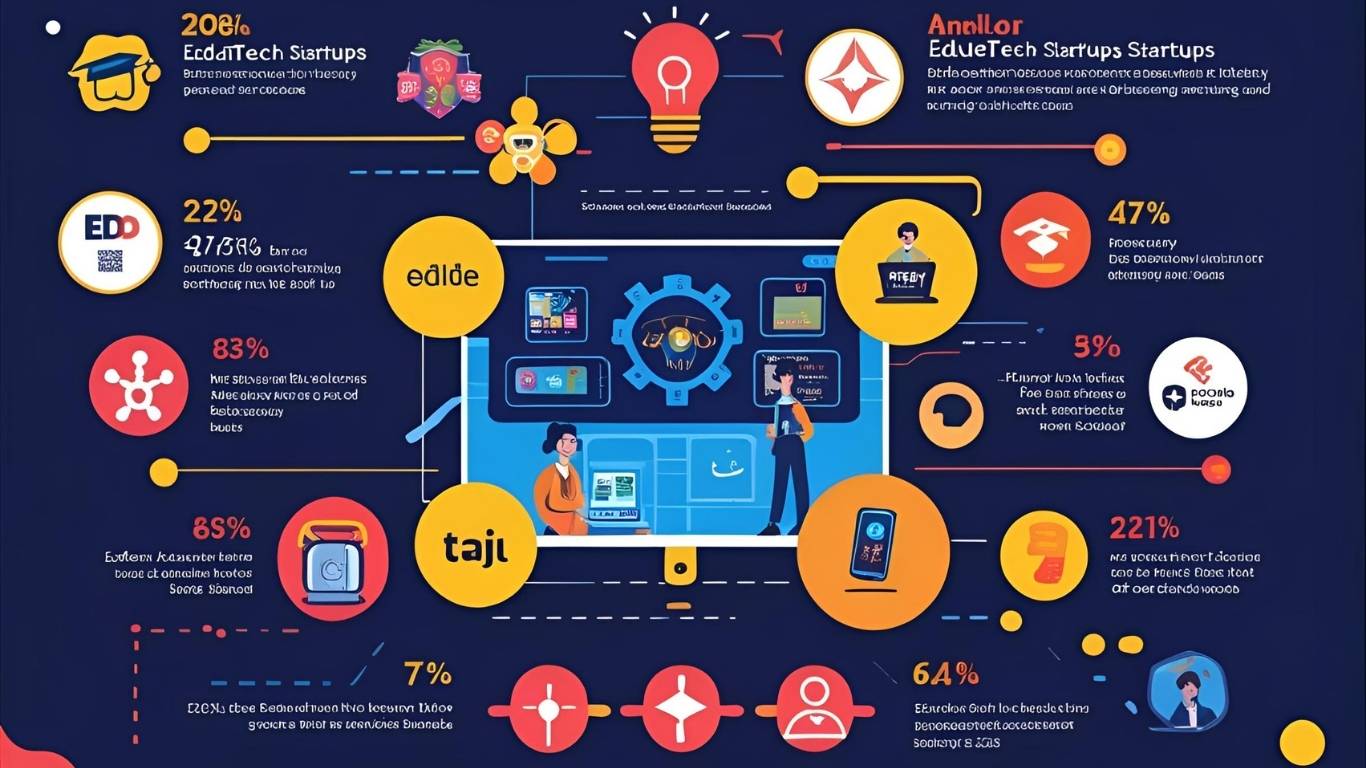EdTech Startups to Watch in 2025
Introduction to the EdTech Boom
Let’s face it, the world of education has had a massive glow-up in the last few years. The old chalk-and-talk model? Out. Digital-first learning? In. And as we head into 2025, EdTech is not just a buzzword—it’s a booming industry transforming how we teach, learn, and grow.
Why EdTech is More Relevant Than Ever
Education isn’t one-size-fits-all anymore. Students today want flexibility, instant feedback, and platforms that speak their language—whether that’s through AI tutors or gamified lessons. EdTech startups are making that happen in brilliant ways.
Pandemic Aftermath and Accelerated Digital Learning
The pandemic was a turning point. Schools were forced to go remote overnight, exposing the cracks in traditional systems. What followed was a surge of innovation—virtual classrooms, learning apps, and AI tools filled the gaps. This isn’t just a phase—it’s the new normal.
Key Trends Driving EdTech Innovation in 2025
AI-Powered Learning Tools
Artificial Intelligence is the brain behind many of 2025’s top EdTech tools. From chatbots that tutor students 24/7 to systems that adapt content in real-time, AI is making education smarter, faster, and more personalized.
Personalized and Adaptive Learning
Forget generic lectures. EdTech startups now use algorithms to tailor learning paths based on each student’s strengths, weaknesses, and pace. It’s like having a tutor in your pocket who actually gets you.
Gamification and Interactive Content
Let’s be real—learning is way more fun when it feels like a game. Think points, badges, leaderboards, and immersive simulations. EdTech is turning dull subjects into engaging adventures.
Microlearning and Short-form Content
Our attention spans are shrinking, and EdTech knows it. Microlearning—bite-sized lessons that you can digest in minutes—is perfect for busy learners who want to pick up skills on the go.
Top EdTech Startups Revolutionizing Education in 2025
1. Synthesis School
Built on the education philosophies of Elon Musk’s Ad Astra School, Synthesis focuses on collaborative problem-solving and critical thinking for kids. Think strategy games + teamwork = next-gen leaders.
2. Class Technologies
This startup adds teaching tools directly into Zoom—attendance, quizzes, breakout rooms, and more. It makes remote learning feel like a real classroom.
3. Engageli
Designed for higher education, Engageli offers a platform that mimics classroom interactivity online, promoting real engagement, not just passive watching.
4. Labster
Virtual science labs? Yes, please. Labster offers simulations that let students conduct real experiments in virtual environments—perfect for STEM students without access to labs.
5. Prenda
Prenda is pioneering the microschool model—small, community-based classrooms led by “guides” instead of traditional teachers. Kids learn at their own pace in personalized, supportive environments.
6. Outlier.org
Outlier offers university-level courses (like Calculus or Psychology) taught by top profs—for a fraction of the cost. It’s making higher education accessible and affordable again.
7. Nolej
Nolej uses generative AI to turn static documents, PDFs, or web pages into interactive lessons, complete with quizzes and media. It’s like turning boring worksheets into smart content.
8. Kibo School
Focused on Africa, Kibo delivers a fully online STEM university experience for underserved regions. It’s bringing high-quality education to places long ignored by traditional systems.
9. UpBrainery
Blending AI and AR, UpBrainery offers future-ready programs in areas like career exploration, STEM, and critical thinking. It’s the career coach every teen needs.
10. Zaya Learning
Zaya builds affordable, offline-compatible learning solutions tailored to underserved communities. From India to Africa, they’re tackling the digital divide head-on.

Startups Focused on Emerging Markets
EdTech isn’t just for Silicon Valley. Startups are blooming in Latin America, Africa, and Southeast Asia—where access to education is often limited. By offering mobile-first, low-bandwidth platforms, these startups are changing lives at scale.
How These Startups are Disrupting Traditional Education
Cost-Effective Models
Many of these startups offer education at a fraction of traditional costs. Some are even free. That’s huge in a world where student debt is crushing dreams.
Focus on Skills Over Degrees
EdTech startups are shifting the spotlight from degrees to demonstrable skills. It’s about what you can do, not what piece of paper you hold.
Real-Time Data and Feedback Loops
Forget waiting for report cards. Today’s platforms give instant feedback—allowing students to improve quickly and teachers to adjust lessons on the fly.
Investment and Funding Trends in EdTech
Who’s Investing and Why
Big players like Andreessen Horowitz, Reach Capital, and Learn Capital are betting big on EdTech. Why? Because the demand is surging, and the potential for impact (and ROI) is massive.
Major EdTech VC Firms to Watch
Look out for Owl Ventures, GSV Ventures, and Brighteye—they’re backing the most innovative names in the space.
Challenges EdTech Startups Face in 2025
Data Privacy Concerns
With so much student data collected, privacy is a big deal. Startups must navigate complex regulations and ensure airtight security.
Digital Divide and Accessibility
Not everyone has a tablet or high-speed Wi-Fi. Startups need to innovate with offline modes, mobile-first apps, and low-data solutions.
Retention and Engagement Issues
Keeping students engaged is harder online. Gamification, AI, and community features are being used to fight “dropout fatigue.”
The Future of EdTech: What’s Next?
The Role of Virtual Reality and Metaverse
Imagine history class inside ancient Rome or chemistry inside a molecule. VR and AR are turning science fiction into science instruction.
Blockchain Credentials and Learning Records
Forget traditional transcripts. Blockchain could let learners own and share verifiable learning records across platforms and employers.
Conclusion
2025 is shaping up to be a blockbuster year for EdTech. With AI, gamification, microlearning, and emerging-market expansion all in play, education is becoming more accessible, engaging, and effective than ever. Whether you’re a student, teacher, investor, or parent—now’s the time to watch (and get involved with) the EdTech revolution.
FAQs
1. What makes an EdTech startup successful in 2025?
A mix of innovation, accessibility, and engagement. Startups that solve real problems—especially around personalized learning and affordability—are thriving.
2. Are EdTech startups only for online learning?
Not at all! Many blend offline and online models, offer mobile apps, or enhance in-person learning with tech.
3. How can I invest in EdTech startups?
You can invest through venture capital firms, crowdfunding platforms like SeedInvest, or directly if you’re an accredited investor.
4. Which EdTech startup is best for K-12 learning?
Synthesis, Prenda, and UpBrainery are standout names focused on engaging and empowering younger learners.
5. What are some future trends in EdTech?
Expect to see more VR learning, blockchain credentials, AI tutors, and learning models tailored for emerging markets.



